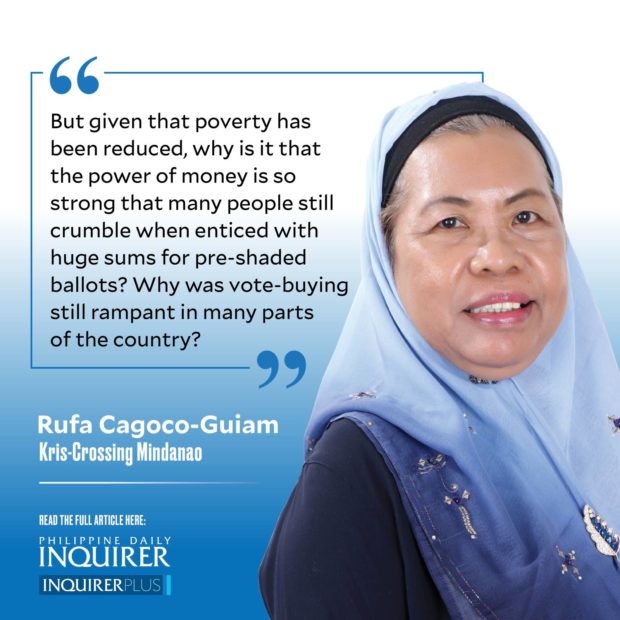More continuity than change
Less than a month from now, the national political landscape and the politicians in it will change as a result of the elections last May 9. I await with a mixed bag of emotions — with bated breath on one hand, and with frayed nerves on the other — with the latter tending to prevail.
I confess that up to now, I am still reeling with disbelief and dismay over the results of the elections. Sure, I tried so hard to “move on,” as my friends have been telling me. One of them sent me a text message saying, “The Fat Lady has sung the last note,” (his own version of the original colloquialism “it ain’t over until the fat lady sings”) and it is time to accept that “… in a representative democracy, we abide by the rule of the majority; it’s time to move on…”
Democracy is certainly a paradox. It is a political system that favors the greater majority, with its avowed principles of individual freedom, free and fair elections, transparency and accountability, respect for individual human rights, and rule of law. But it is also a system that has encouraged elected officials to do what they can, as allowed by law, to satisfy their unbridled greed for power and wealth, and even justify such shameless acts as a way of protecting national interest. This happened during martial law when our avowed democratic system became a springboard for one strongman’s scheme of perpetuating himself in power, to address so-called security problems affecting the country as a whole.
Democracy is also a system that has encouraged local leaders to ensure their continuity, even if they have already passed this world. Just a cursory look at the names of many localities in Maguindanao, for example, will tell you that they have become the “property” of certain family names, when current leaders are the descendants of the person after whom a town is named.
For many leaders, both past and present, change is not really on their agenda, as it could lead to unprecedented and unforeseen chain of events that might not be in their favor. When they try to implement a bottom-up type of change rather than the usual top to bottom one, they do so more with lip service than operational processes.
Many local government officials like to be credited for addressing poverty in their respective areas of responsibility. They claim to have reduced poverty levels several notches below where their local government units or regional units were before they assumed office. This then becomes a rallying point for a massive publicity scheme, to point to their achievement in creating a “welcome” type of change, especially when such a claim is supported by numbers.
But their programs and initiatives do not allow for new, innovative ways of addressing poverty. They tend to do more of the same, as has been done before. There are dole-outs couched in one nomenclature after another, depending on the sitting political leaders. It is like the same animal, only with a different collar.
But given that poverty has been reduced, why is it that the power of money is so strong that many people still crumble when enticed with huge sums for pre-shaded ballots? Why was vote-buying still rampant in many parts of the country? This was shown in a news report last week when Commission on Elections Commissioner George Garcia bared that a “large amount of money” was withdrawn in Ilocos Sur, citing a vote-buying report from the Anti-Money Laundering Council (AMLC).
As a septuagenarian, I have experienced a long history of voting in my lifetime, and I can remember the days of the bi-partisan Philippine elections when voters choose from only two political parties, the Nacionalista and Liberal parties. My parents used to tell me stories about how to make money during election time, when they wait for the wards of the party with the higher amounts offered prior to actual voting time.
If the report of the AMLC is true, then we haven’t changed much as a country. The actors have changed, but the script remains the same.
Comments to rcguiam@gmail.com
MORE ‘KRIS-CROSSING MINDANAO’ COLUMNS
Scaling formidable walls that divide us





















